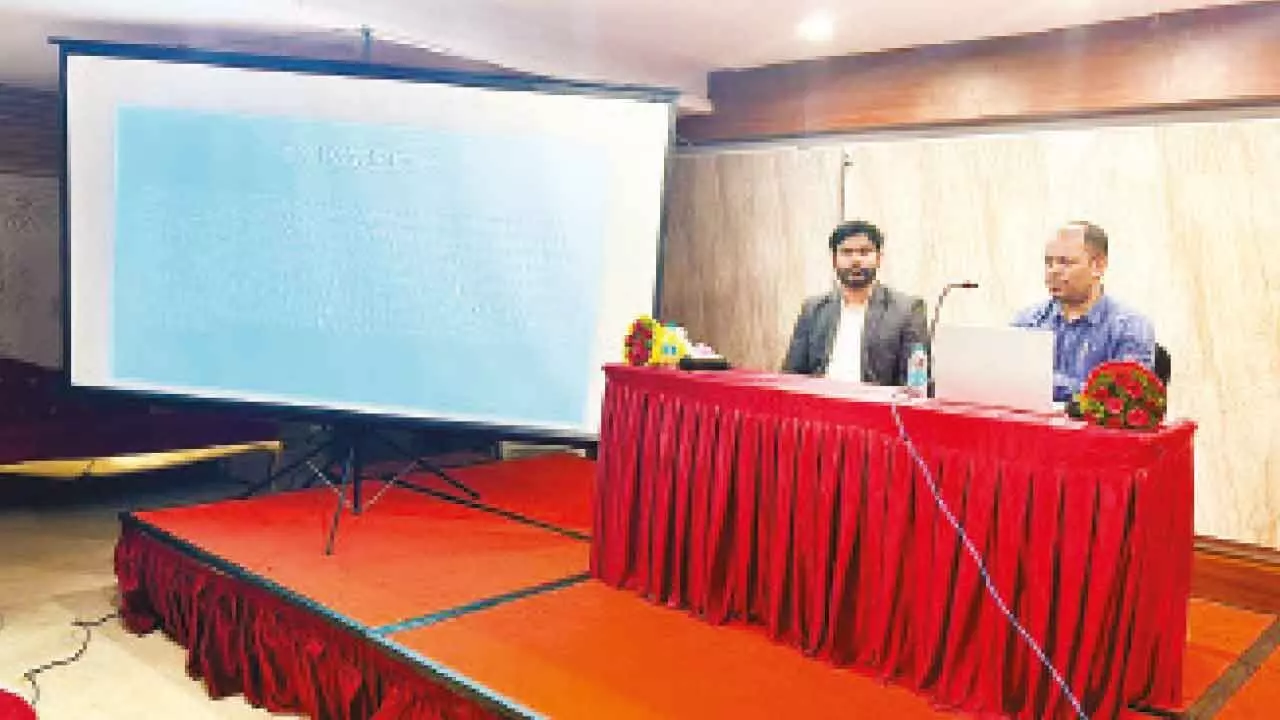Silent dehydration threatens Visakhapatnam residents
Experts stress the urgent need for community awareness and education, particularly for vulnerable groups, to prevent silent dehydration
Experts at an awareness program on silent dehydration in Visakhapatnam

Visakhapatnam: Over the past decade, the escalating heat crisis has claimed over 1,788 lives in Andhra Pradesh, with Visakhapatnam--the largest city in the State emerging as one of the hardest-hit regions.
Amid unrelenting temperatures and enduring heatwaves, Vizag is battling a growing yet often overlooked health crisis - silent dehydration. In April 2024, the coastal city recorded a staggering high of 43.4°C with perceived temperatures frequently reaching 50°C due to extreme humidity.
Experts say this harsh climate has triggered an alarming surge in silent dehydration, a health risk characterised by the gradual loss of body fluids and electrolytes. Silent dehydration is a dangerous health risk, often escalating unnoticed until it becomes severe.
Tackling this condition goes beyond mere water intake. The experts say it involves a balanced consumption of fluids and electrolytes, integral for maintaining the body’s fluid balance, nerve and muscle functions.
Electrolytes, while regulating nerve and muscle function, are also vital for overall cellular activity. The health risks associated with heatwaves, such as dehydration, exhaustion, and heat stroke, can quickly escalate to life-threatening conditions. The rise in silent dehydration cases has led to an overwhelming influx of patients in government hospitals. Each health unit is treating approximately five to 10 patient daily suffering from severe heat wave-related conditions. However, the lack of adequate cooling facilities in hospitals has resulted in patients’ reluctance to admit themselves for treatment. This impediment is hampering their recovery process, highlighting the urgent need for improvements in healthcare infrastructure.
Dr Loknath Tripathy, internal medicine physician, who runs SK Clinics, emphasised at an awareness program here on Tuesday that the necessity of addressing the increased energy demands in non-diarrheal conditions. “While electrolytes can be replenished with WHO ORS, it is best suited for addressing dehydration in diarrheal conditions.
For non-diarrheal conditions, electrolyte drinks with energy play a crucial role in recovery. While homemade fluids can be considered, ready-to-serve electrolyte drinks offer a convenient option.”
Adding to the perspectives, Dr MVE Rama Naidu, another internal medicine physician, who works for Happy Clinic, underscored the importance of community-level awareness and education in tackling the silent dehydration problem.
He said, “While medical interventions and infrastructure improvements are crucial, we must also invest in education and preventive measures. The public must be made aware of the signs and dangers of silent dehydration. Simple actions, like drinking water and consuming electrolyte-rich foods and beverages regularly, can go a long way in preventing the condition.”
The experts also underline the need for a massive awareness campaign as healthcare messages should reach the most vulnerable groups, like the elderly and children, who are at a higher risk of dehydration during heatwaves.

